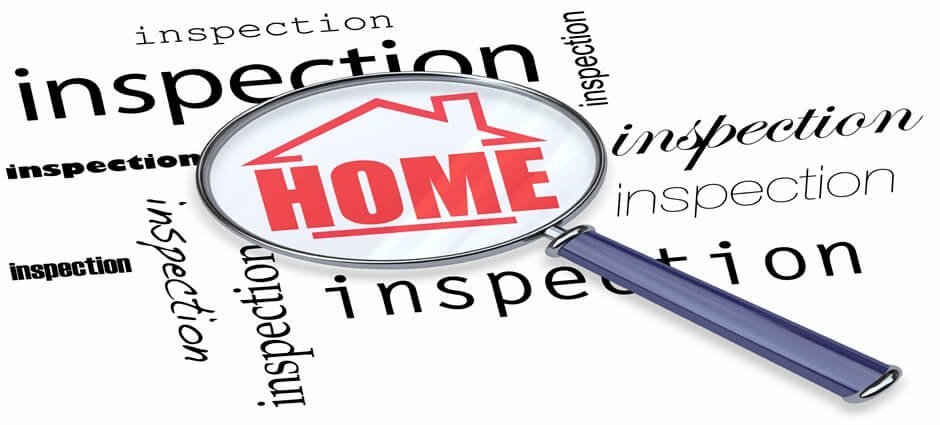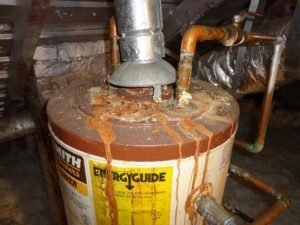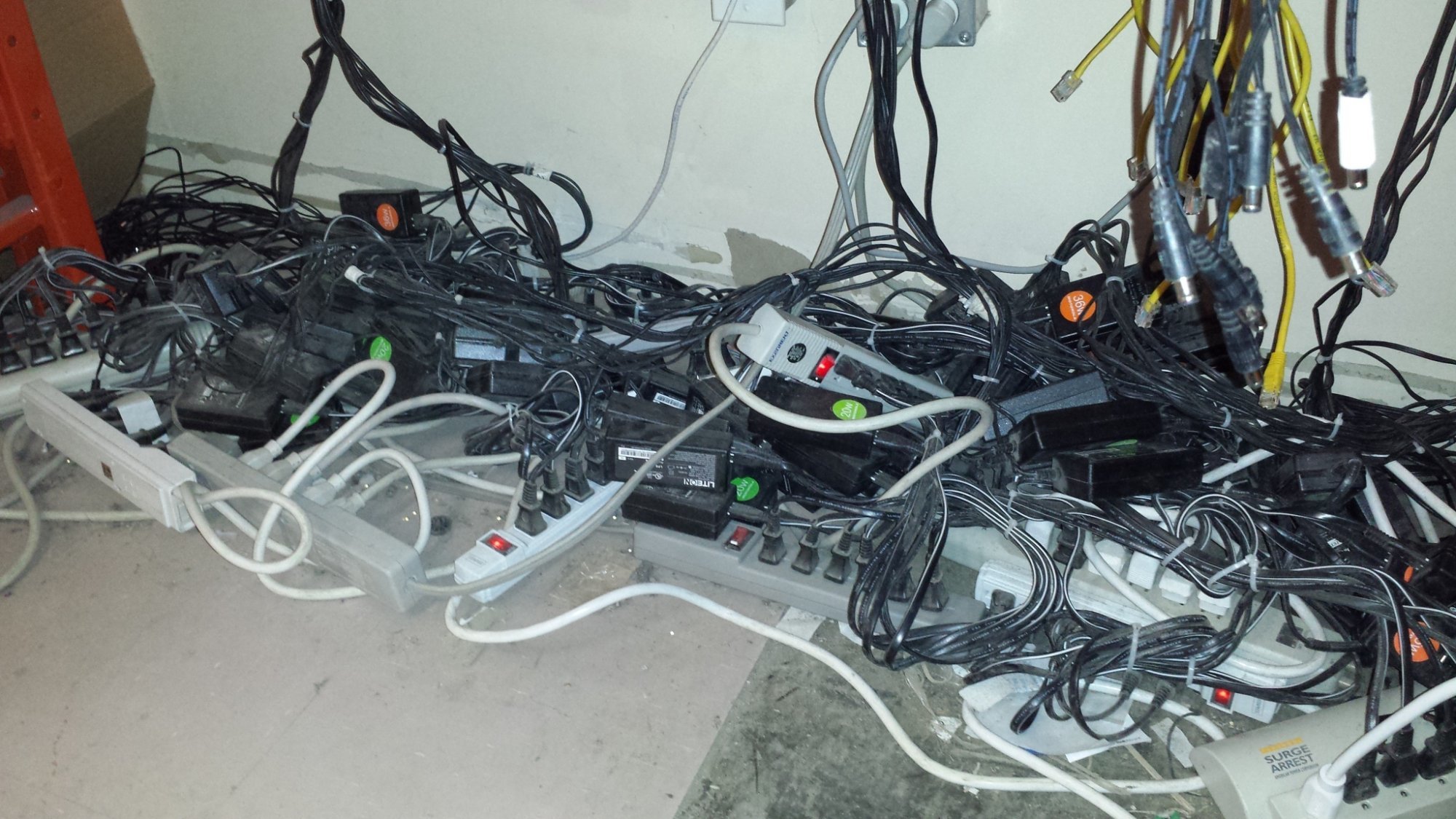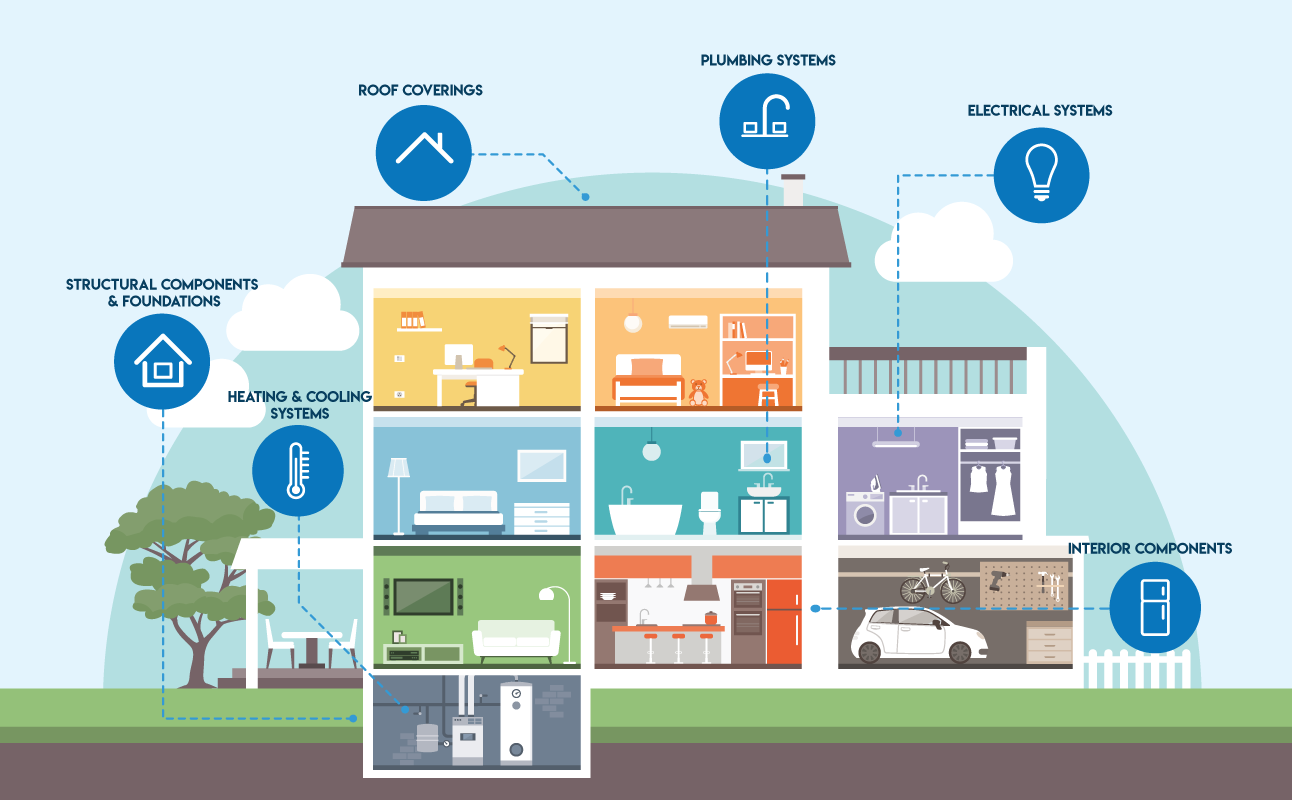 Home inspections are a huge part of buying and selling a home.
Home inspections are a huge part of buying and selling a home.
While in most cases a home inspection is optional, it’s highly recommended by experts so you can be aware of the home’s condition and potential problems. One of the most common pitfalls new home buyers experience are issues with the home they didn’t know about but could have been fixed prior to closing. Remember, if you have an inspection before purchasing a house, the issues are the seller’s, but if not, the buyer, you are responsible.
One of the most common subjects to a real estate transaction is the home inspection. An inspector’s report is often the deciding factor to move forward with a purchase and can be used to renegotiate the sale price or allow sellers to make repairs. It can also be used as a reason to break the agreement altogether.
In this article we’re going to explain the importance of getting an inspection before buying a house and provide you a simple checklist of things you can do before an inspection.
How Much does a Home Inspection Cost?
Home inspections cost roughly (depending on area) $450 if you have a home with more than 2,000 sq feet (ca. 186 square meters) but can be as much as $500 if it's a large home. Smaller Condos and town homes with less than 1,000 square feet (92.9 square meters) could cost as little as $250. So if you're buying a $500,000 house the inspection is around 0.1% of the cost of the house.
9 Most Common Problems found during a Home Inspection
- Faulty wiring. Outdated and worn out electrical systems are the most common problem, especially in older homes.
- Roof problems. A common issue is worn out roof’s that need to be replaced.
- Plumbing issues. Worn out pipes and repairs needed to toilets.
- Small items were not replaced by the previous owner which could mean big problems in the future.
- Air Conditioning and Heating Systems. Systems that were not installed correctly or not maintained are another problem you need to watch out for.
- Minor Structural issues. Drainage. The gutter system does not drain water away from the foundation.
- Gaps in the windows that can air and water leaks.
- Attics with poor insulation and ventilation
- Damaged water heater
As a seller, you may want to tackle obvious problems prior to the inspection.
These tips from home inspectors will help you navigate the process.
-
Check Your Hot Water Tank
With current insurance rules on houses in Canada if the water heater is over 10 years old you may be refused insurance. Check the date on the tank and find how old it is and maybe build a replacement unit into your offer. Check that there is a drain line connected to the TPR valve on your water heater. If the water heater overheats, the valve will open and drain the water, otherwise the water heater can blow up. The drain tube should be visible within six inches of the floor. Working with a great realtor will help you remember these small things.
-
Check for Water Near Your Foundation
According to most inspectors, 6-foot downspout extensions are recommended to move water away from the foundation. No matter whether you have a slab, basement, or crawl space, water near your foundation is bad news for you and your home.
-
Keep Your Gutters Clean
Even if you aren’t prepping your house to sell, gutter cleanliness is something you should be concerned about. Your gutters control the flow of water from your roof and protect not only your foundation, roof, insulation and walls, but also your lawn. Damage from gutters that aren’t properly functioning can cost hundreds or even thousands of dollars to repair.
-
Safety-Proof Your Range
Using range anti-tip brackets is crucial to prevent your range from tipping over if weight is put on the door. These brackets became required by appliance manufacturers in 1991, but that doesn’t necessarily mean you have one!
one!
-
Double Check Your Dishwasher
Although new dishwashers come from the manufacturer with the drain looped up at the side of the dishwasher, every installation manual still requires this high loop underneath the sink. Your dishwasher drain tube should go up above the bottom of the sink and down into the drain or garbage disposal.
-
Electrical Wires, Outlets and Switch Boxes
Normally what's checked includes the following. Main power, grounding system, fixtures, receptacles and switches, branch circuit wiring, main panel, etc. Any electrical wiring that is not a factory installed cord less than seven feet long should either be inside a wall or encased in conduit. This is the same for outlets and switch boxes. They have to be covered. It doesn’t just look better, it’s required.
-
Watch Out for Condensation
Whether on your chimney, your ceiling, around an air vent, or on windows, this is likely the sign of a larger issue. Try to determine the reason for the excess moisture and remedy it, or call in a professional to diagnose and solve the problem.
-
Look for Leaks
In general, it’s a good habit to regularly check your plumbing for leaks. And, staying on top of plumbing issues can save you time and money when it comes time for a home inspection. In fact, before your inspector comes, do your own walk through so that you’re not surprised by any repairs that are needed.

-
Check Stair Handrails
According to Porter, if you have more than four steps, a handrail is required—indoors and outside. Make sure handrails that are already in place are securely fastened.
-
Check Your Dryer Vent
This is good practice even if you aren’t prepping for a home inspection because there are about 7,000 fires caused by dryers every year in the U.S. Check for tears, obstructions, and that the material they’re made of is up to code.
-
Make Sure Wood is Stored Properly
Although this is something you might not think of, Porter notes that wood for a fireplace or wood-burning stove must be stored a minimum of three feet from your home. “Your firewood can attract wood destroying insects such as termites and carpenter ants.”
-
The Once-Over
This may seem obvious, but there are things an inspector will check that you may not have actually used in a long. “Check all of your windows, doors, the garage door sensor lights, etc.,” says Porter. Remember, your buyer will expect everything in the home to work!
Home Inspection Checklist that the inspectors will check
Most home inspectors check many of the same possible issues. However, there is not a universal home inspection checklist that every company uses. Make sure that your report at least includes the following.
Foundation – Make sure there are no obvious cracks in the foundation by looking around the walls and ceilings. Do the same to the exterior of the home looking for cracked bricks and trees planted to close to the home. Drainage – Check the gutters and ensure water will flow away from the foundation.
Roof – Do the singles need to be replace? Asphalt shingles has a lifespan of 15-40 years.
Exterior – Go over the entire exterior of the home. Are there any broken fixtures, does it need repainting, is there rotting wood or exposed
Interior – Check the walls, ceilings, doors and baseboards. Is everything in acceptable order for you
Electrical – Test the outlets to make sure they work, do the same with the lights. Water sprinklers – If the home has water sprinklers installed, run the system to make sure all zones are functioning correctly.
Air conditioning and heater – Check the air condition and heating systems to make sure they are working properly and need no repairs.
Appliances – Do all the appliances work, feel free to test the microwave, dishwasher, oven and stove.
Odor – If the home smells, people just assume it was the previous owners, not the smell of the house itself. Make sure all areas of the home are dry and nothing is leaking. Wet areas can cause musty smells.
Termite Inspection – Check interior attic and exterior of the home for termites and existing termite treatment systems currently installed and other insect inspection. Mold Inspection – Check the home for mold.
Water Heater – Ensure the heater unit is fully functional.

Comments(1)